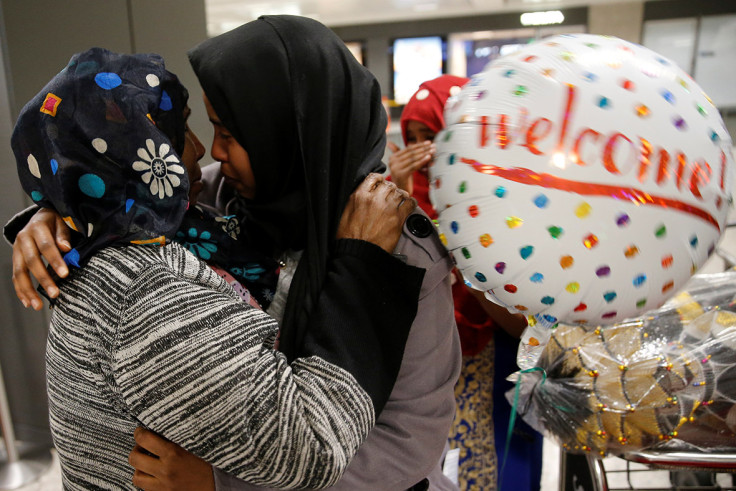Federal appeals court refuses to reinstate Trump's controversial travel ban
The case could now head to the Supreme Court, where it could face a 4-4 tie among justices.
A federal appeals court unanimously refused to reinstate President Donald Trump's travel ban on refugees and travelers from seven predominately Muslim countries on Thursday (9 February). The decision is likely to be appealed in the US Supreme Court.
Trump quickly lashed out on his favourite social media platform. "SEE YOU IN COURT, THE SECURITY OF OUR NATION IS AT STAKE!" he tweeted.
The panel with the US Court of Appeals for the 9th Circuit upheld the ruling of US District Judge James Robert in Seattle. Robart ruled on Friday (3 February) that Trump's temporary travel ban would be put on hold, prompting the Department of Homeland Security to suspend its enforcement of the executive order, The Washington Post reported.
The Justice Department could head to the Supreme Court, which remains one justice short, to intervene. However, a 4-4 tie in the high court would keep the appeals court's decision intact.
According to The New York Times, judges around the US have blocked parts of Trump's executive order, though no other case has reached an appeals court. Judge Robart's ruling last week allowed immigrants and travelers who had been banned to come into the US. This sparked a heated reaction from Trump, who accused Robart of endangering national security.
After arguments were heard by the appeals court on Tuesday (7 February), Trump sent a pre-emptive criticism on Twitter. "If the US does not win this case as it so obviously should, we can never have the security and safety to which we are entitled. Politics!" he wrote.
Final arguments by a Justice Department lawyer and Washington state's solicitor general were made to the three-person panel. The judges on the panel were Judge Michelle Friedland, who was appointed by President Barack Obama; Judge William Canby Jr, who was appointed by President Jimmy Carter; and Judge Richard Clifton, who was appointed by President George W Bush.

The Justice Department lawyers, representing the administration, said the courts should not second-guess the president's national security judgements. Lawyers added that the Constitution and federal law allowed the president broad power to determine who to allow in the country, The Times reported.
Friedland reportedly asked a Justice Department lawyer if the government had "pointed to any evidence connecting these countries with terrorism." Meanwhile, Clifton added that there was already a screening process in place. Clifton asked the lawyers: "Is there any reason for us to think that there's a real risk or that circumstances have changed such that there's a real risk?"
"The president determined that there was a real risk," August Flentje, the Justice Department lawyer, replied.
Meanwhile, lawyers for the opposition – Washington and Minnesota – argued that the ban was motivated by religious discrimination and actually endangered instead of enhanced the nation's security.
While the president does have broad authority to ban people from entering the US, lawsuits around the US have claimed Trump's executive order was unconstitutional by intentionally targeting Muslims.
© Copyright IBTimes 2025. All rights reserved.






















